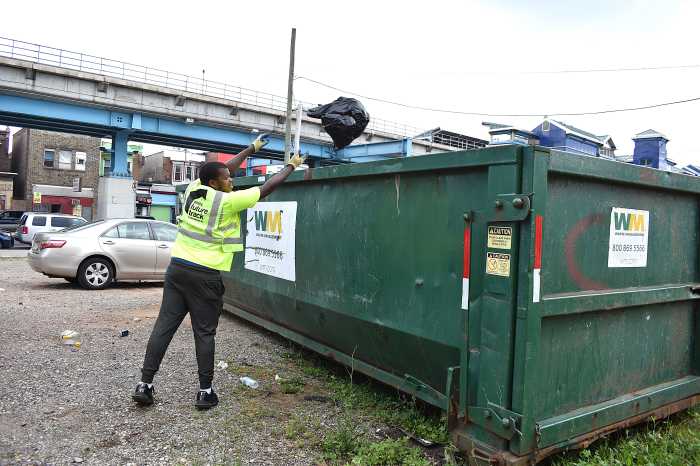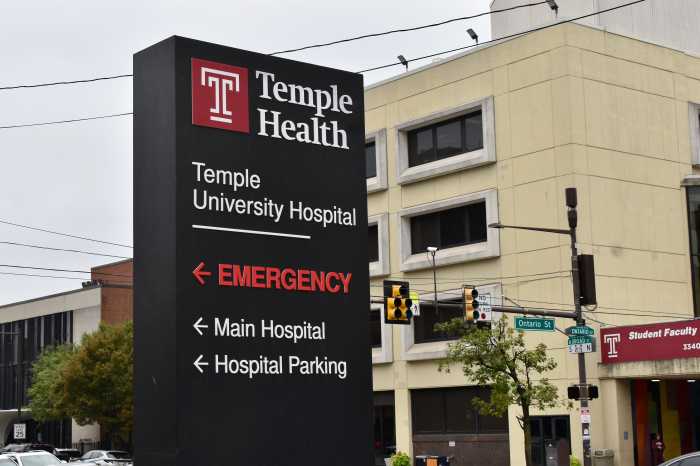While employed at one of the city’s popular retail chains, Madison Nardy, an immunocompromised South Philadelphian who cares for her sick mother, worked hours so unpredictable that it was difficult, if not impossible, to schedule a doctor’s appointments or take time off for self-care.
With little advance notice of her shifts given, Nardy, a Temple student and now board member of the organizing group One Pennsylvania, struggled to arrange the bimonthly wellness checkups both her and her mother required.
She couldn’t use vacation time, which employees only accrued after one year of service, and had limited sick hours — a week’s worth, which Nardy needed to save for emergencies.
Like many low-wage, retail, and service shift-workers in America, Madison Nardy felt like management put a target on her back. Sometimes management would schedule her to open the store only six hours after working the closing shift, the stress of which became overwhelming for Nardy.
Studying was impossible, and, at one point, she considered dropping out of school.
“[It] brought extreme amounts of stress on me and actually caused me to be diagnosed with anxiety disorder,” Nardy said. “I would have panic attacks and I would have to go in the bathroom just to calm myself down and escape this reality of being a working-class person.”
A diverse group of thousands of working-class activists spent years pushing back against a system of irregular hours so egregious that shift workers can’t schedule appointments, go to school, find child care, or predict their pay.
With ultimate reforms such as raising the minimum wage trapped in the gridlock of Harrisburg, advocates like Nardy and organizations like One Pennsylvania lobbied City Council for a series of reforms that would make things easier for and give dignity back to retail, service, and hospitality workers. Passed in December 2018, Philadelphia’s Fair Workweek law gives those who work for qualified employers the right to a predictable schedule.
The law was a big win for workers in Philadelphia, passing despite opposition from area employers and business-friendly constituencies in City Hall. But when the COVID-19 pandemic hit, decimating the service and retail sectors — a struggle that continues to this day — officials delayed its implementation.
Now, amid new pandemic-era worker solidarity movements, Philadelphia’s Department of Labor works overtime to spread information about the city’s Fair Workweek law.
“The law does require a posting in the workplace,” Candace Chewning said. Chewning, the strategic enforcement and communications director for the Office of Worker Protections, explained that her office recently completed a survey with partner organizations examining area workers’ knowledge and understanding of Fair Workweek, with results to be released soon.
“We work with a lot of community and labor unions, and those folks have a lot of direct connections to workers covered under the law. So folks are hearing about it that way.”
“Our office offers employer compliance support, so we do proactively do outreach to employers covered under the law,” she continued.
Under Philadelphia’s Fair Workweek law, retail, service, and hospitality workers who work for qualified employers, those with 250 or more employees and at least 30 locations worldwide — think big-box stores or chain restaurants — are now required to have predictable schedules.
When first hired, a new employee must receive what’s called a “Good-Faith Estimate,” meaning employers must, in writing and good faith, state how many hours a person can expect to work in 90 days and how many, if any, on-call shifts they can expect. Workers also have a right to a 14-day advance schedule; nine hours of rest between shifts; and a right of first refusal, meaning employers can’t hire new employees before offering work to current ones, as stated by law, by posting the shift opening in an accessible location for 72 hours.
Should management change or cancel a schedule without proper notice, workers now have a right to “predictability pay,” or one hour of pay at the employee’s current rate. Predictability pay is not given for worker-initiated changes to a schedule. Franchise, temp agency, and undocumented employees are, in most cases, covered by the law should they work for a qualified employer.
The Fair Workweek law is one of several passed throughout the country in recent years, though organizers say that Philadelphia’s worker-led effort is one of the most comprehensive.
According to Chewning, the law is working as hoped, with several employees already winning damages for unfair scheduling practices under the law, including a much-publicized incident at an area Target earlier this year. But, as progressive as Fair Workweek is, organizers argue that there is room for improvement.
Nadia Hewka, a senior attorney at Community Legal Services who heads up the Vulnerable Workers Project, notes that leaving small businesses out of the law also meant leaving out those who work for such employers.
“I think that it would be great if everyone could get the protections of the Fair Workweek law and get advanced notice of schedules,” she said. “There could be future expansions of the law to cover more workplaces.”
And according to Madison Nardy, the fight doesn’t stop there.
“We need a national Fair Workweek too,” she said. “Because every single worker in this country deserves a fair workweek. But not only that, we also need to raise the minimum wage.”
Philadelphia retail, service, or hospitality workers interested in more information on Fair Workweek or those who think their employer may have committed a violation can contact the Philadelphia Department of Labor at fairworkweek@phila.gov or 215-686-0802.





























